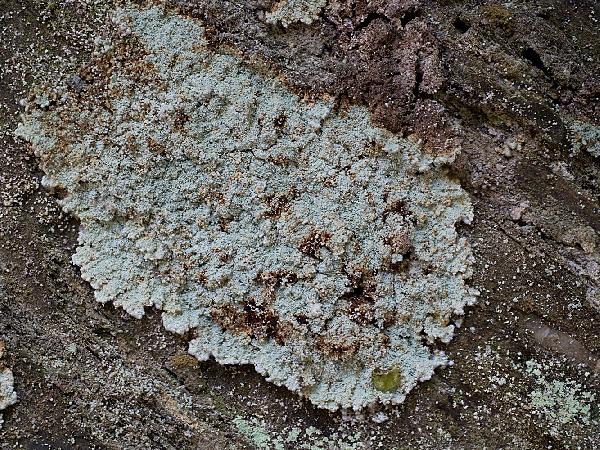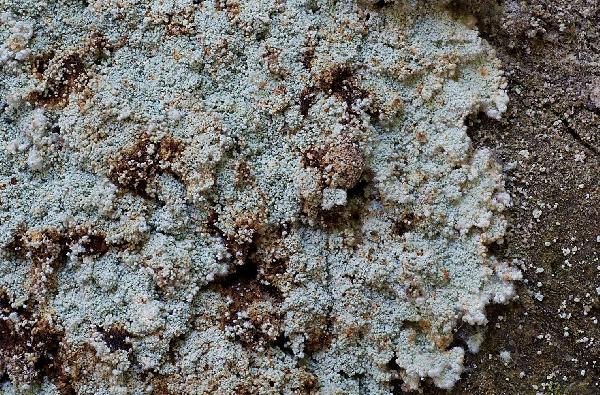Lepraria crassissima (Hue) Lettau
Feddes Rep., 61: 125, 1958. Basionym: Crocynia crassissima Hue - Bull. Soc. Bot. France, 71: 393, 1924.
Synonyms:
Distribution: N - Frl (Baruffo & al. 2006), Lomb (Ravera & al. 2019b), Emil (Scarpa 1993, Baruffo & al. 2006, Fariselli & al. 2020). C - Tosc (Baruffo & al. 2006). S - Cal (TSB 10549).
Description: Thallus leprose, consisting in a thick and soft, uneven-folded mass of soredia-like granules, bluish white to pale blue-grey, usually well-delimited, the margin sometimes indistinctly lobed, but without raised edges. Granules mostly coarse, up to 60-120 μm in diam., with a loose surface but without projecting hyphae. Medulla very thin, poorly evident. Lower surfaces folded, white to yellowish brown, easily detached from the substrate. Photobiont chlorococcoid. Spot tests: K-, C+ red, KC- or KC+ red, P-, UV+ bright bluish white. Chemistry: divaricatic acid, nordivaricatic acid (major, rarely trace), zeorin (major to minor). Note: an often misunderstood species (see Baruffo & al. 2006) occurring on vertical to rain-sheltered, shaded surfaces of siliceous , sometimes weakly calciferous rocks and on epilithic mosses, most often in humid forests, with optimum below the subalpine belt. Older records, which could refer to L. nivalis, are not reported. A detailed discussion of this species is provided by Lendemer (2011).
Growth form: Leprose
Substrata: rocks, soil, terricolous mosses, and plant debris
Photobiont: green algae other than Trentepohlia
Reproductive strategy: mainly asexual, by soredia, or soredia-like structures (e.g. blastidia)
Commonnes-rarity: (info)
Alpine belt: absent
Subalpine belt: absent
Oromediterranean belt: absent
Montane belt: very rare
Submediterranean belt: extremely rare
Padanian area: absent
Humid submediterranean belt: extremely rare
Humid mediterranean belt: absent
Dry mediterranean belt: absent

Predictive model
Herbarium samples
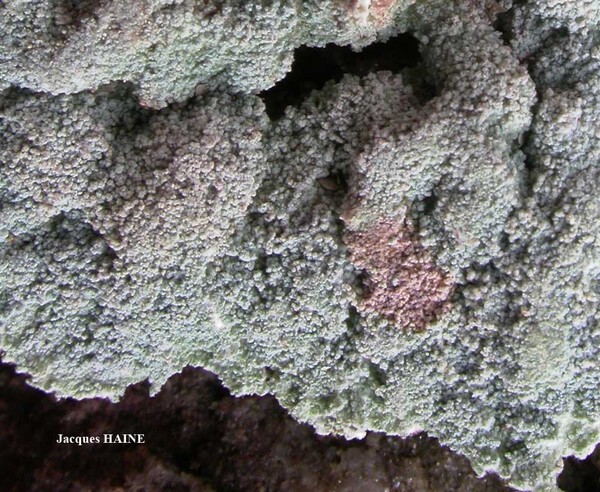
Jacques Haine - Source: http://www.lichensmaritimes.org/index.php?task=fiche&lichen=599&lang=en
France, Ardennes
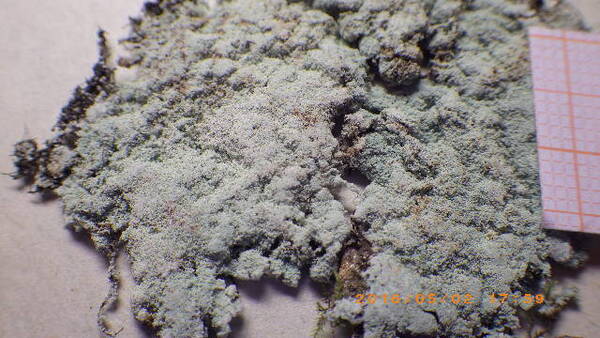
Tor Tønsberg, University Museum of Bergen CC BY NC
Herbarium: Holotype
Source: http://v3.boldsystems.org/index.php/Taxbrowser_Taxonpage?taxid=783022/Arthonia_byssacea_l2.jpg
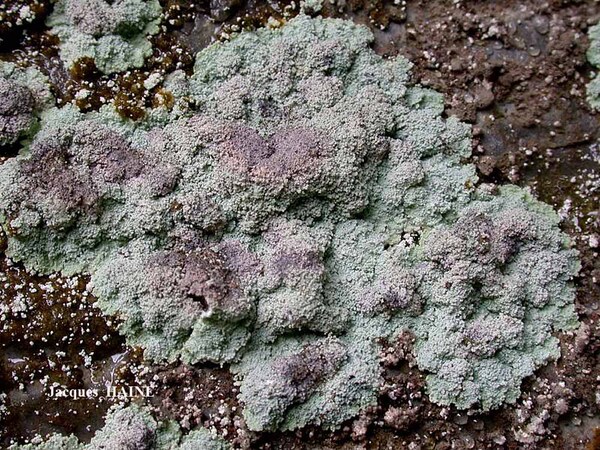
Jacques Haine - Source: http://www.lichensmaritimes.org/index.php?task=fiche&lichen=599&lang=en
France, Ardennes
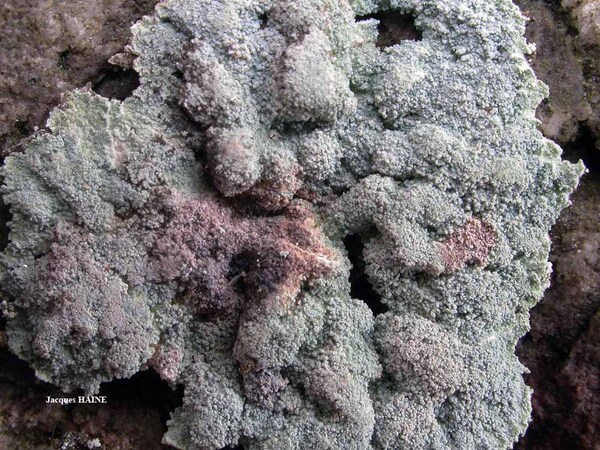
Jacques Haine - Source: http://www.lichensmaritimes.org/index.php?task=fiche&lichen=599&lang=en
France, Ardennes
Growth form: Leprose
Substrata: rocks, soil, terricolous mosses, and plant debris
Photobiont: green algae other than Trentepohlia
Reproductive strategy: mainly asexual, by soredia, or soredia-like structures (e.g. blastidia)
Commonnes-rarity: (info)
Alpine belt: absent
Subalpine belt: absent
Oromediterranean belt: absent
Montane belt: very rare
Submediterranean belt: extremely rare
Padanian area: absent
Humid submediterranean belt: extremely rare
Humid mediterranean belt: absent
Dry mediterranean belt: absent

Predictive model
| Herbarium samples |

Jacques Haine - Source: http://www.lichensmaritimes.org/index.php?task=fiche&lichen=599&lang=en
France, Ardennes

Tor Tønsberg, University Museum of Bergen CC BY NC
Herbarium: Holotype
Source: http://v3.boldsystems.org/index.php/Taxbrowser_Taxonpage?taxid=783022/Arthonia_byssacea_l2.jpg

Jacques Haine - Source: http://www.lichensmaritimes.org/index.php?task=fiche&lichen=599&lang=en
France, Ardennes

 INDEX FUNGORUM
INDEX FUNGORUM
 GBIF
GBIF
 DOLICHENS
DOLICHENS
